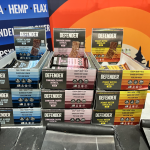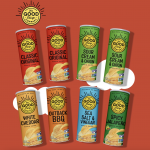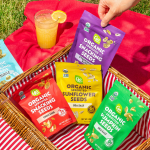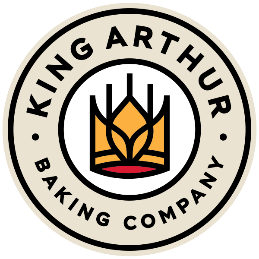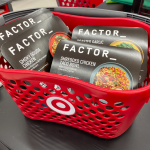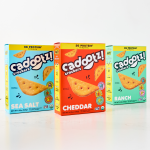Everytable Seeks to “Pioneer New Food System Model”
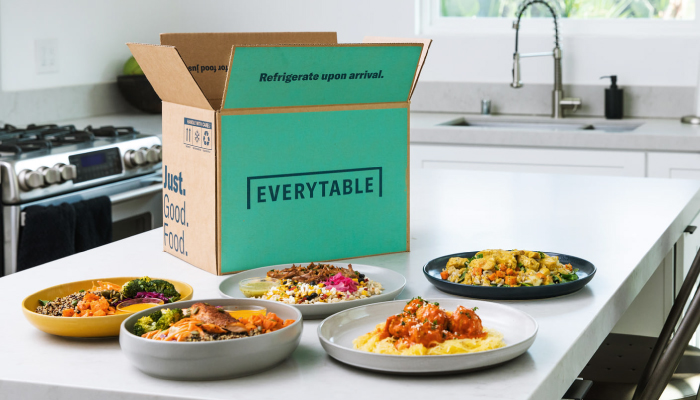
As consumers look for more affordable and healthy meal options as well as convenient delivery methods, mission-driven food company Everytable aims to rival the convenience of shelf-stable packaged foods and drive-through burgers by making its fresh prepared meals accessible to both affluent and underserved communities.
Following accelerated expansion of its operational and logistical capacity amid the pandemic, the Los Angeles-based food company is preparing for continued growth. The company, which currently sells fresh, fully prepared meals at prices that decrease depending on consumers’ incomes, announced late last month the closing of a $16 million funding round and will use the capital to grow its online efforts, as well as open stores across Southern California.
The round was led by Creadev, with participation from Kaiser Permanente Ventures, the venture capital arm of healthcare company Kaiser Permanente, along with Candide Group, Gratitude Railroad Ventures, Desert Bloom Food Ventures and Kimball Musk.
Founded in 2016, Everytable’s multichannel fresh prepared food model offers meals like salads, warm meals and wraps along with snacks and beverages through nine grab-and-go storefronts, a direct-to-consumer delivery service across Los Angeles, as well as tech-enabled vending machine service (or micro markets) in Los Angeles, Orange County and San Diego. The ultimate goal, according to the company, is to meet consumers’ demand for healthy food options in a way that is accessible to and affordable for all communities.
Though the Covid-19 pandemic has hit the company’s in-store and SmartFridge business, investors were impressed by the company’s ability to pivot and the “versatility of [Everytable’s] model” through its ability to reach consumers wherever they are,” CEO Sam Polk said. The company delivered meals to low-income senior citizens and partnered with the city of Los Angeles to provide meals to the city’s homeless population, resulting in a production increase from 30,000 to 180,000 meals per week in less than a month. This volume required the addition of 150 team members along with additional refrigerated trucks and kitchen equipment.
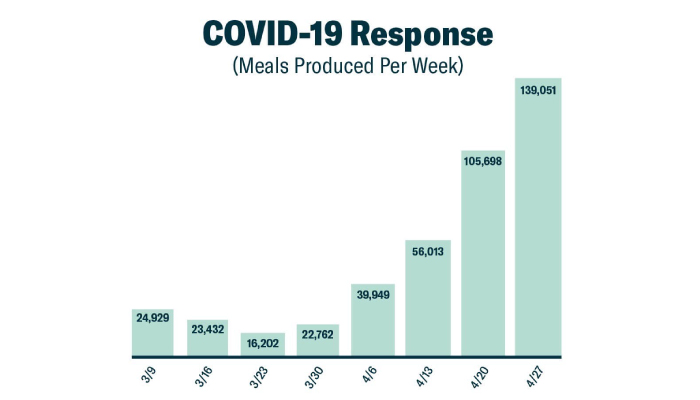
With staffing and production now in place, Everytable has since used the opportunity to adjust its model, looking at translating these programs to more direct-to-consumer efforts.
“The only thing stopping Everytable’s growth is no longer production capacity, it’s really can we generate enough demand,” Polk said. “And that actual part is pretty easy on some level, because we are the only company in the country that is able to offer a healthy made-from-scratch meal that is less than the price of fast food. Not only is that attractive to customers in our restaurants, it’s also attractive to our subscription delivery customers whose only other options are $10, $11 or $12 meals.”
Everytable will use some of the funding to build out this subscription delivery service, which has become the company’s largest channel. The service first launched before the pandemic, after Polk found many shoppers were buying a week’s worth of meals at a time in stores. In addition to adding to its subscription delivery team and expanding its delivery radius, the company will also expand its offerings to appeal to families, adding more grocery items to its offerings, such as salmon, chicken or vegetables, bottled smoothies, cold-pressed juices and new snacks and desserts over the next few months. Everytable is also building out an “omnichannel tech stack,” which Polk said will enable customers’ loyalty points (which add up to free meals) to follow them across channels from subscription delivery and SmartFridge to in-store purchases.
This accessibility is key to the company’s model, Polk, a former trader who left Wall Street to focus on social enterprise, said. Everytable’s meal prices are tailored to the income of each community where a store is located, or the zipcode of consumers, Polk explained. Meals in more “affluent” communities typically cost $7 or $8, while those in underserved neighborhoods such as Compton or South Los Angeles will receive meals for $5 or $6.
As it grows, the company will also be focused on expanding its sustainable farming practices and supporting entrepreneurs from marginalized communities. Everytable’s low meal prices are possible because the company sources ingredients directly from farms, with a “vertically integrated system, end-to-end system,” Polk said. Looking to empower disenfranchised entrepreneurs as it expands its footprint, the company also recently launched a new social equity franchise program, an education platform that provides entrepreneurs of color with hands-on training and capital to open Everytable locations in their communities.
Ultimately, Polk’s goal is to grow Everytable’s fresh-prepared food model to be a competitor with major CPG companies such as Kraft Heinz as well as fast food giants like McDonald’s who rely on processed, shelf-stable supply chains to sell cheap food products, which Polk noted are unhealthy “by definition.”
“The entire world is getting sick and realizing that we’re at the end of this 50 year experiment that has gone horribly wrong, so that’s why we think that what we’re doing is pioneering a new food system model that is giving consumers what they really want, which is that they don’t want to prepare food themselves,” Polk said. “They want to eat healthy, they want it to taste really good, and they want it to be really affordable. We think we’ve cracked the code on all of that, which really gives us a runway to being one of the largest food companies in the country, if we can execute well.”
